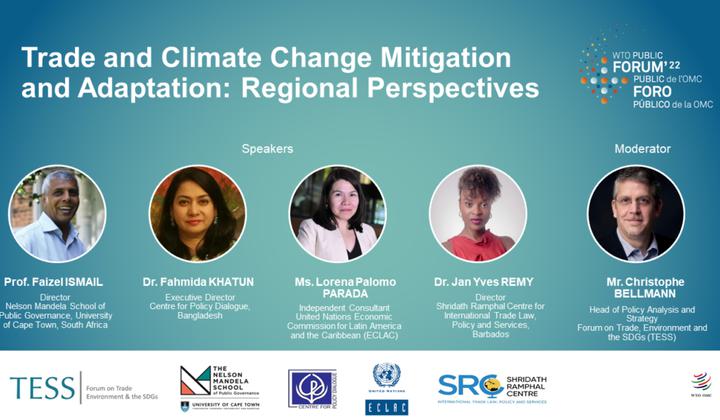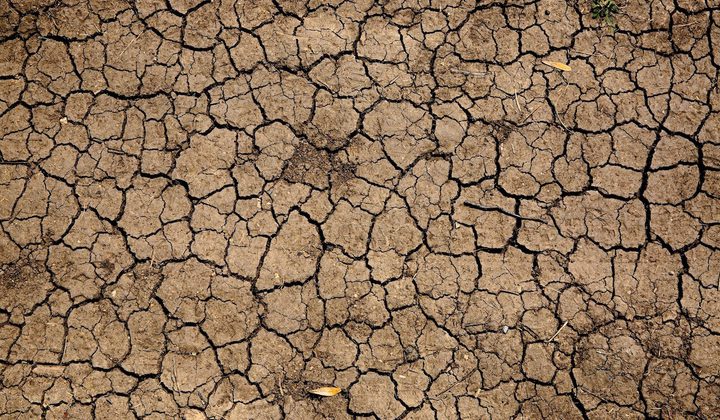Climate-related crises are escalating across the African continent. The Intergovernmental Panel on Climate Change highlights that while Africa has contributed among the least to greenhouse gas emissions “key development sectors have already experienced widespread loss and damage attributable to anthropogenic climate change, including biodiversity loss, water shortages, reduced food production, loss of lives and reduced economic growth.”
The harsh realities of climate change are prompting calls across the continent for efforts to ensure greater climate resilience, foster higher-value added production, build clean energy infrastructure, and increase climate-smart agricultural productivity while guaranteeing food and nutrition security. Alongside, countries in the region have made commitments to reduce their greenhouse gas emissions in their Nationally Determined Contributions, in accordance with the Paris Agreement. At the same time, governments and stakeholders are exploring ways to ensure that climate change mitigation and adaptation efforts are mainstreamed in sustainable development strategies in line with the concept of Climate Resilient Development defined by the Intergovernmental Panel on Climate Change.
Trade and investment policies will play a critical role in this equation. The increase in the frequency and intensity of climate hazards will continue to damage critical trade infrastructure in the continent and have an array of implications for African trade, such as on agricultural production and trade, as well as food security. While trade can foster sustainable development, it can also contribute to GHG emissions. Trade may also play a substantial role in mitigation and adaptation efforts by scaling up the diffusion of environmental goods and services, including energy efficiency and clean energy technologies. And trade policies will also be part of the policy mix needed to facilitate access to and uptake of climate technologies as well as to spur the development and transformation of sectors critical for low carbon and climate resilient development in Africa.
The increase in the frequency and intensity of climate hazards will continue to damage critical trade infrastructure in the continent and have an array of implications for African trade, such as on agricultural production and trade, as well as food security.
The climate-trade nexus is also relevant because African countries and businesses face a rapidly changing global market place and regulatory environment as investors and consumers prioritise climate action and as governments in key export markets adopt an array of trade-related climate measures and green industrial policies. Regional integration processes, such as the African Continental Free Trade Area (AfCFTA), will also have an important role to play in supporting transformative industrialization of Africa and sustainable development in the region while facilitating a transition to a low carbon and more resilient economy.
At the global level, however, the debate on trade and climate change has largely focused on concerns, policies, and proposals of more advanced economies. African countries have so far mostly reacted to such proposals but have not yet advanced their own priorities on how cooperation on trade can support climate change mitigation and adaptation efforts in the continent and advance climate resilient development.
As a contribution to ongoing discussions, TESS and the Nelson Mandela School of Public Governance at the University of Cape Town (UCT), South Africa hosted a regional consultation involving stakeholders from the region. The workshop provided an opportunity to:
- present the preliminary findings from a research paper by Professor Faizel Ismail providing a regional perspective and recommendations on how international cooperation on trade and trade-related policies can support climate change mitigation and adaptation efforts in Africa and climate resilient development;
- solicit stakeholder feedback on these findings and spur sharing of further information and inputs on relevant topics; and
- discuss priority areas for action and recommendations for how international cooperation on trade at the regional and multilateral level could support climate change mitigation and adaptation efforts in Africa and climate resilient development in the continent.
The regional consultation witnessed participation from over 25 participants including government representatives and permanent missions to the World Trade Organization in Geneva, academia, and civil society organizations.
Agenda
Opening Remarks
- TESS & Nelson Mandela School of Public Governance at UCT
Trade and Climate Resilient Development in Africa: Towards a Global Green New Deal
- Faizel Ismail, Director, Nelson Mandela School of Public Governance at UCT
Comments by Discussants
- Melaku Desta, Africa Trade Policy Centre, UN Economic Commission for Africa (UNECA)
- Brendan Vickers, Head of International Trade Policy at The Commonwealth Secretariat
Open Discussion
Closing Remarks
- TESS & Nelson Mandela School of Public Governance at UCT
Click HERE to view the presentation.
Developing Country Perspectives
This dialogue is part of a series of dialogues & policy papers commissioned by TESS with partners on Developing country perspectives on trade, climate change, and sustainable development.





